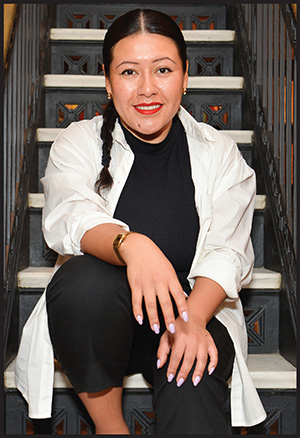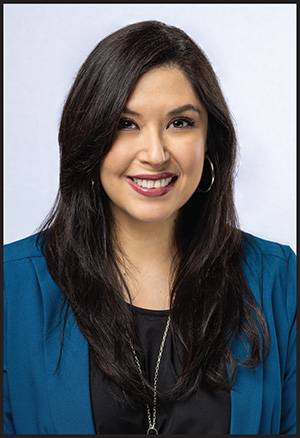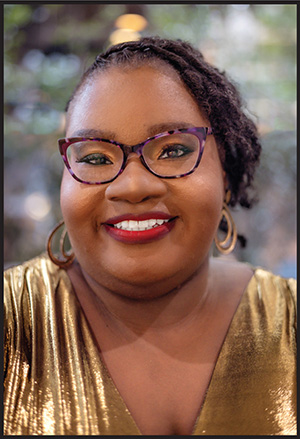Advocacy
Josselyn Atahualpa oversees adult education courses in literacy, English as a Second Language, and GED preparation. When she noticed a wave of asylum seekers coming to the library in early 2022, Atahaulpa alerted library leadership and pushed QPL to prioritize training on best practices for serving the community.
From her podcast, Allie the Librarian Booktalks, to her leadership with the Texas Library Association, Alexandra Cornejo demonstrates her unwavering commitment to intellectual freedom and promoting diverse voices in literature.
Meredith Crawford, Community Engagement Librarian with the Cedar Rapids Public Library, launched the Be Heard program at a local youth detention center with the goal of reducing recidivism by engaging students with literature and art.
As an American Library Association Emerging Leader, Nicollette Davis is always looking for ways to improve the library field. Through the We Here organization, she helps BIPOC library and information science professionals support each other in a welcoming space.
LaShawn Myles had not worked specifically with the disability community when she joined the Maryland State Library for the Blind and Print Disabled in 2018. Her work as an educator led her to libraries, where she quickly became a champion for visually impaired patrons, advocating for resources and finding ways to make materials more accessible.
Mychal Threets, whose earnest TikTok videos have logged millions of views, started out sharing stories that epitomized what he calls “library joy” to inspire people to visit their library. He ended up capturing hearts across social media.
Monnee Tong’s career has been shaped by her passion for social justice, which carries through to her work as supervising librarian at San Diego Public Library.
Visser's work on E-Rate policy and technology equity has been a game-changer for communities across the country, including in tribal libraries, where she helped improve access to broadband.
When Missouri’s Senate Bill 775 (SB 775) became law in 2022, calling for criminal penalties on educators who provide students with materials containing “explicit sexual material,” Melissa Corey recognized the severe implications for collection development and spearheaded a swift response to preserve compliant books in school libraries.
ALREADY A SUBSCRIBER? LOG IN
We are currently offering this content for free. Sign up now to activate your personal profile, where you can save articles for future viewing









